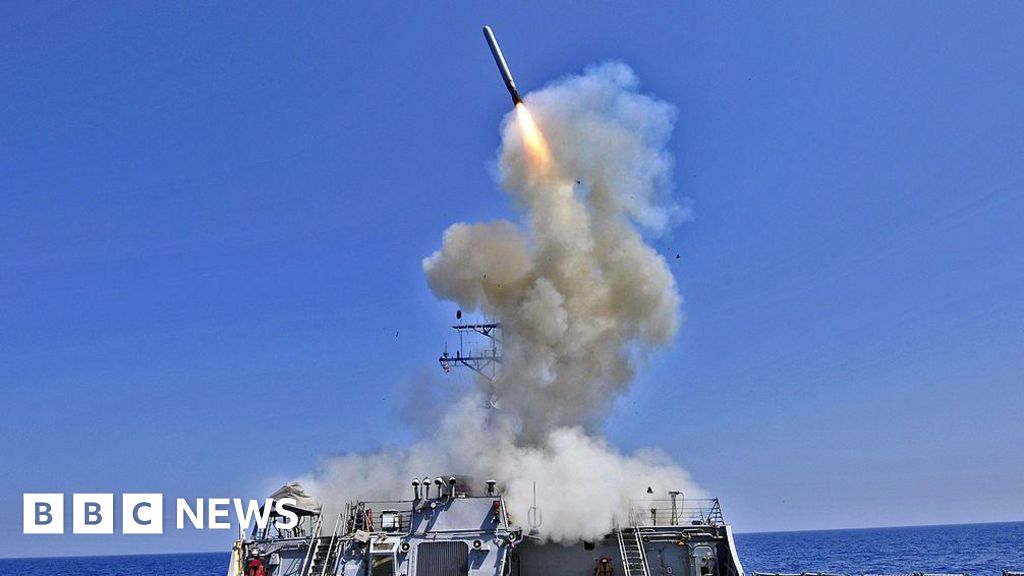Return of American cruise missiles to Germany angers Moscow

Image source, US Navy via Getty Images
- Author, Paul Kirby
- Role, BBC News
-
From 2026, US long-range missiles will be regularly stationed in Germany for the first time since the Cold War. This was decided at the summit to mark NATO’s 75th anniversary.
A 1988 treaty between the United States and the former Soviet Union would have banned such missiles. However, the pact collapsed five years ago.
Russian Deputy Foreign Minister Sergei Ryabkov said Moscow would respond with a “military response to the new threat.”
“This is merely one link in the chain of escalation,” he argued, accusing NATO and the United States of trying to intimidate Russia.
The joint German-American statement made it clear that the “episodic” deployment of the missiles was initially viewed as temporary, but would later serve as a permanent part of the American commitment to NATO and European “integrated deterrence.”
German Defense Minister Boris Pistorius said at the NATO summit in Washington that the idea behind the US plan was to encourage Germany and other European countries to invest in the development and procurement of longer-range missiles themselves.
The temporary stationing of American weapons would give NATO allies time to prepare, he explained: “We are talking about an increasingly serious capability gap in Europe.”
On Thursday, Pistorius signed a letter of intent with colleagues from France, Italy and Poland to develop long-range missiles in Europe. The European Long-Range Strike Approach (Elsa) is intended to improve Europe’s missile capabilities, which are “urgently needed to deter and defend our continent,” the Italian news agency Ansa reported.
Such missiles were banned by the Intermediate-Range Nuclear Forces Treaty (INF), signed at the end of the Cold War, which covered ground-based missiles with a range of between 500 and 5,500 kilometers (310 to 3,400 miles).
Russian President Vladimir Putin considered the pact too restrictive and in 2014 the US accused him of violating the pact with a new type of nuclear-capable cruise missile.
The US finally withdrew from the treaty in 2019 and Russia followed suit.
Politicians from the German Green Party criticized Chancellor Olaf Scholz’s approval of the approval of US missiles on German soil.
The Greens are part of Mr Scholz’s governing coalition, and their security spokeswoman Sara Nanni expressed her frustration that he had not commented on the decision.
“It can even increase fears and provide space for disinformation and agitation,” she told the “Rheinische Post”.

